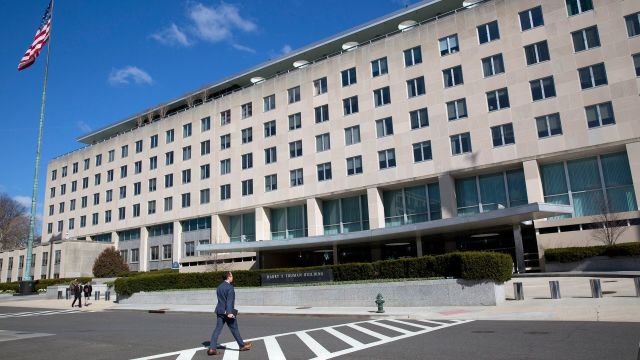The US administration is trying to convince Belgrade to join the sanctions against Moscow, said Gabriel Escobar, Deputy Assistant Secretary of State for European and Eurasian AffairsWASHINGTON, December 1.
/tass/. Washington believes that Russia is losing influence on the Balkan countries in the light of a special military operation in Ukraine, the US administration is trying to convince Belgrade to join sanctions against Moscow. This was stated by Deputy Assistant Secretary of State for European and Eurasian Affairs Gabriel Escobar on Thursday, speaking at the Washington Atlantic Council.
"The crisis in Ukraine has helped to focus attention on what is happening in the Western Balkans. Instead of the Western Balkans being forgotten by politicians, we are again focusing on solving some problems in the region," he said.
Speaking about the mood in the Balkan states, the American diplomat outlined a version according to which "any reasonable observer and analyst will understand that Russia will not be a reliable partner in the future." "I think <...> that at least some very reasonable people are moving away from these relations," Escobar added, talking about the course of the Balkan countries. He also claims that Russia is allegedly trying to keep part of the Western Balkan countries in its orbit, but "from an economic point of view, politically, geographically, they are losing this battle."
Speaking about Washington's policy in the region, the diplomat assured that the United States is "strengthening ties between the community of democratic countries." Escobar also claimed in this regard that "many countries [in the region] realize that they do not need to rely on Russia."
At the same time, Escobar complained that "on the part of some figures" in the region "there has always been resistance to integration, resistance to the necessary reforms aimed at the rule of law, resistance to difficult political decisions that need to be taken for the region to move forward." "There have always been problems there, they are just a little more urgent now," the Deputy Assistant Secretary of State believes.
Speaking about the course chosen by the Serbian authorities, Escobar said: "We would also like to see closer coordination with the European Union." "Serbia has come a long way in relations with Europe and especially in relations with the United States," he continued. "I personally called on Serbia to impose sanctions, to focus more [on the West] and to demonstrate more that it is guided by the values of Europe."
"I can say that we have achieved partial success," the American diplomat believes. - I mean that Serbia voted against Russia at every opportunity in the UN, in the European Bank for Reconstruction and Development and in the Human Rights Council. This vote is more important than just symbolic, it is important."
Speaking about Serbia's desire to join the European Union and ensure greater integration in the region, Escobar stressed: "We believe in both of these goals. The question is how do we make something European out of it, something transatlantic."
On February 24, Russian President Vladimir Putin announced a special military operation in response to the request of the leaders of the republics of Donbass for help. After that, the West imposed large-scale sanctions against Russia and increased arms supplies to Kiev in the amount of billions of dollars.

